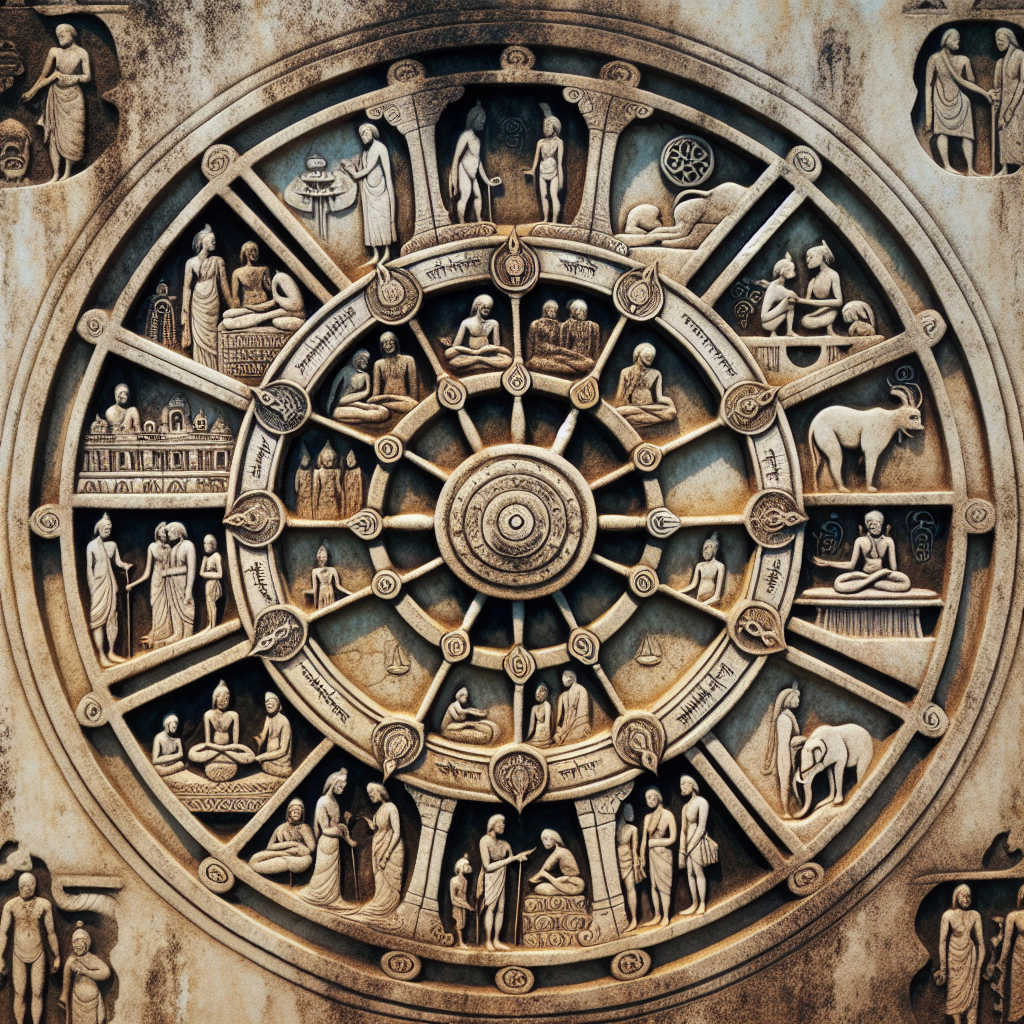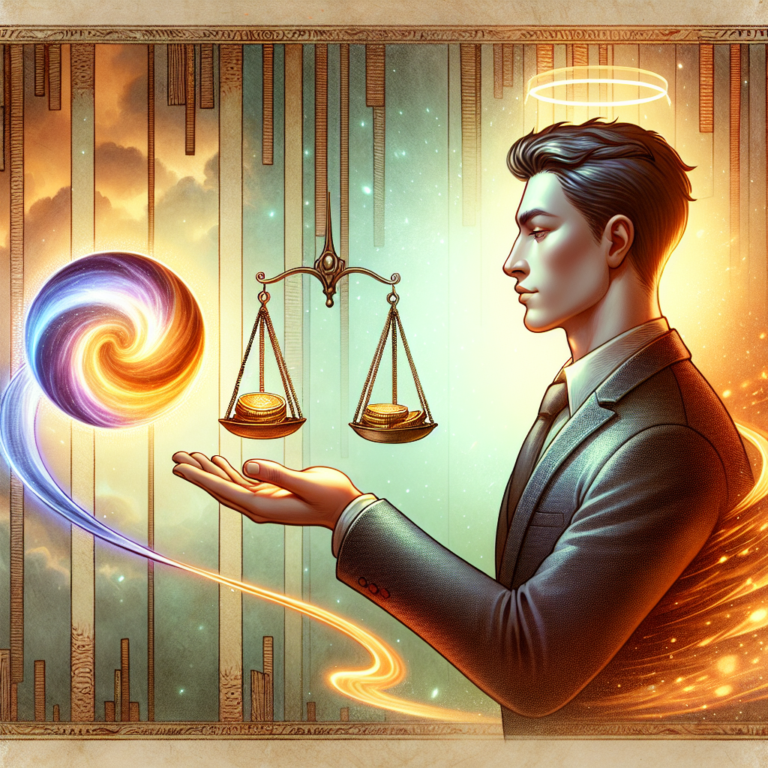Karma—a term derived from ancient Indian philosophy—refers to the principle of cause and effect, where one’s actions (ethical, unethical, or neutral) influence their future circumstances. While often associated with spirituality and moral lessons, karma holds significant implications for our relationships and decisions. Understanding how negative karma manifests can illuminate the ways in which we interact with others and make choices in our lives. This article explores the concept of negative karma and its cyclical nature, revealing its impact on relationships and the decision-making processes.
Understanding Negative Karma
Negative karma refers to the consequences of harmful actions, thoughts, or behaviors—whether intentional or unintentional. When people act out of malice, ignorance, or selfishness, they not only impact their current existence but also sow the seeds for future challenges. The "cycle" of negative karma is akin to a repeating cycle of negativity that affects relationships, whether romantic, familial, or platonic.
Negative karma does not exist in a vacuum; it interacts with our lives, presenting challenges that push us to reflect, learn, or repeat the behavior. This repetitive cycle can create a toxic environment where misunderstandings, resentment, and conflict flourish.
The Impact of Negative Karma on Relationships
1. Erosion of Trust
Trust is the bedrock of any successful relationship. Negative karma, through actions like dishonesty or betrayal, can erode this trust and create lasting rifts. For example, if one partner continually lies to the other, the psychological effects can lead to insecurity and defensiveness. Once trust is breached, rebuilding it is often a daunting task. The cycle of negative karma perpetuates these feelings of betrayal, as mistrust leads to further hurtful behaviors, creating a destructive feedback loop.
2. Communication Breakdown
Every relationship relies on effective communication. When negative karma is present, communication often becomes distorted by past grievances and unresolved issues. Individuals may engage in blame-shifting or resort to passive-aggressive behaviors. Misunderstandings become prevalent, amplifying frustration and bitterness. This communication breakdown ensnares each party in their own cycle of negativity, making resolution increasingly elusive.
3. Repeating Patterns
Many relationships suffer because individuals unconsciously partner with others who reinforce their unresolved karma. People may find themselves drawn to unhealthy dynamics reminiscent of past relationships. This cycle often arises from unhealed emotional wounds; as individuals project their negative karma onto new partners, the history repeats itself. Recognizing these patterns is crucial to breaking free from the cycle.
4. Influence on Decision-Making
Negative karma influences our decision-making processes profoundly. Individuals with unresolved negative karma may make choices driven by fear, revenge, or self-preservation rather than love, empathy, and growth. This reactive approach can manifest in decisions like choosing questionable romantic partners, abandoning friends during tough times, or even engaging in risky behavior.
Furthermore, fear of retribution or guilt from past actions can result in decision paralysis—preventing individuals from making necessary changes or pursuing healthier relationships. When caught in this cycle, individuals may inadvertently harm themselves, compounding their negative karma further.
Breaking Free: Navigating the Cycle of Negative Karma
Acknowledging the existence of negative karma is the first step towards transformation. Here are several strategies that can help break free from the cycle:
1. Self-Reflection
Taking time for introspection is vital. Individuals must evaluate their past actions and recognize how these contribute to their current circumstances. Journaling or engaging in therapy can help bring clarity and understanding of recurring patterns in relationships.
2. Embrace Forgiveness
Forgiving oneself and others is a powerful act that can release the hold of negative karma. It liberates individuals from the burden of resentment, enabling emotional healing. Forgiveness does not condone harmful actions but rather allows for the rebuilding of personal integrity and healthy relationships.
3. Foster Empathy
Understanding the perspectives of others can shift the focus from blame to compassion. Cultivating empathy can help individuals recognize the pain their negative karma has caused, encouraging more thoughtful interactions and decisions moving forward.
4. Commit to Positive Actions
Recognizing the role of positive actions is essential in counteracting negative karma. Engaging in acts of kindness, honesty, and open communication fosters a healthier environment, encouraging people to break the cycle.
5. Seek Support
Sometimes, breaking the cycle requires external help. Joining support groups or seeking guidance from mentors and therapists can provide necessary tools and perspectives for healing and growth.
Conclusion
The cycles of negative karma can ensnare individuals in patterns that harm their relationships and cloud their decision-making processes. Recognizing these patterns is the first step in walking the path toward healing. By embracing self-reflection, forgiveness, empathy, and positive action, individuals can break free from the burdens of negative karma. Ultimately, fostering healthy relationships and making conscious decisions can lead to a life marked by positivity, growth, and fulfillment.
FAQs
1. What is karma?
Karma is a spiritual principle of cause and effect, where an individual’s actions—positive or negative—impact their future experiences. It’s rooted in many spiritual and philosophical traditions, particularly in Hinduism and Buddhism.
2. What does negative karma mean?
Negative karma refers to the consequences of harmful actions, thoughts, or behaviors that create undesirable outcomes in a person’s life and relationships. It can manifest in patterns of conflict, distrust, and negative experiences.
3. How can one break the cycle of negative karma?
Breaking the cycle involves self-reflection, embracing forgiveness, fostering empathy, committing to positive actions, and seeking external support when needed. It requires conscious effort to heal and create healthier relationships.
4. Can negative karma affect decision-making?
Yes, negative karma can impact decision-making processes by leading individuals to make choices based on fear, guilt, or revenge rather than love and growth. Unresolved issues can result in decision paralysis, hindering personal development.
5. Is it possible to change one’s karma?
Yes, individuals can change their karma by engaging in positive actions, evolving their mindset, and addressing unresolved emotional wounds. Each conscious action can create new, positive karma, fostering healthier relationships and experiences.
It looks like you might be looking for a writing prompt or some creative inspiration. Here are a few options for you:
Sci-Fi Exploration: In the year 2145, humanity discovers a wormhole that leads to a parallel universe. Write about the first team of explorers sent through and the unexpected challenges they face.
Mystery: A famous painting goes missing from a local museum. Write from the perspective of a quirky detective who uncovers more than just the painting’s location.
Fantasy Adventure: In a world where dreams can be harvested and turned into magical potions, a young dreamweaver uncovers a conspiracy that threatens the fabric of reality. Describe their journey to save both dreams and reality.
Character Study: Write a day in the life of a barista who serves coffee to an array of interesting customers, each with their own story. How do these interactions impact the barista’s outlook on life?
- Historical Fiction: Set during the height of the Roman Empire, a young gladiator dreams of freedom. Tell the story of his journey from the arena to reclaiming his life.
Let me know if you’d like more ideas or if you have a specific genre in mind!
, #Caught #Cycle #Negative #Karma #Influences #Relationships #Decisions, #Caught #Cycle #Negative #Karma #Influences #Relationships #Decisions, 1736575360, caught-in-a-cycle-how-negative-karma-influences-relationships-and-decisions




